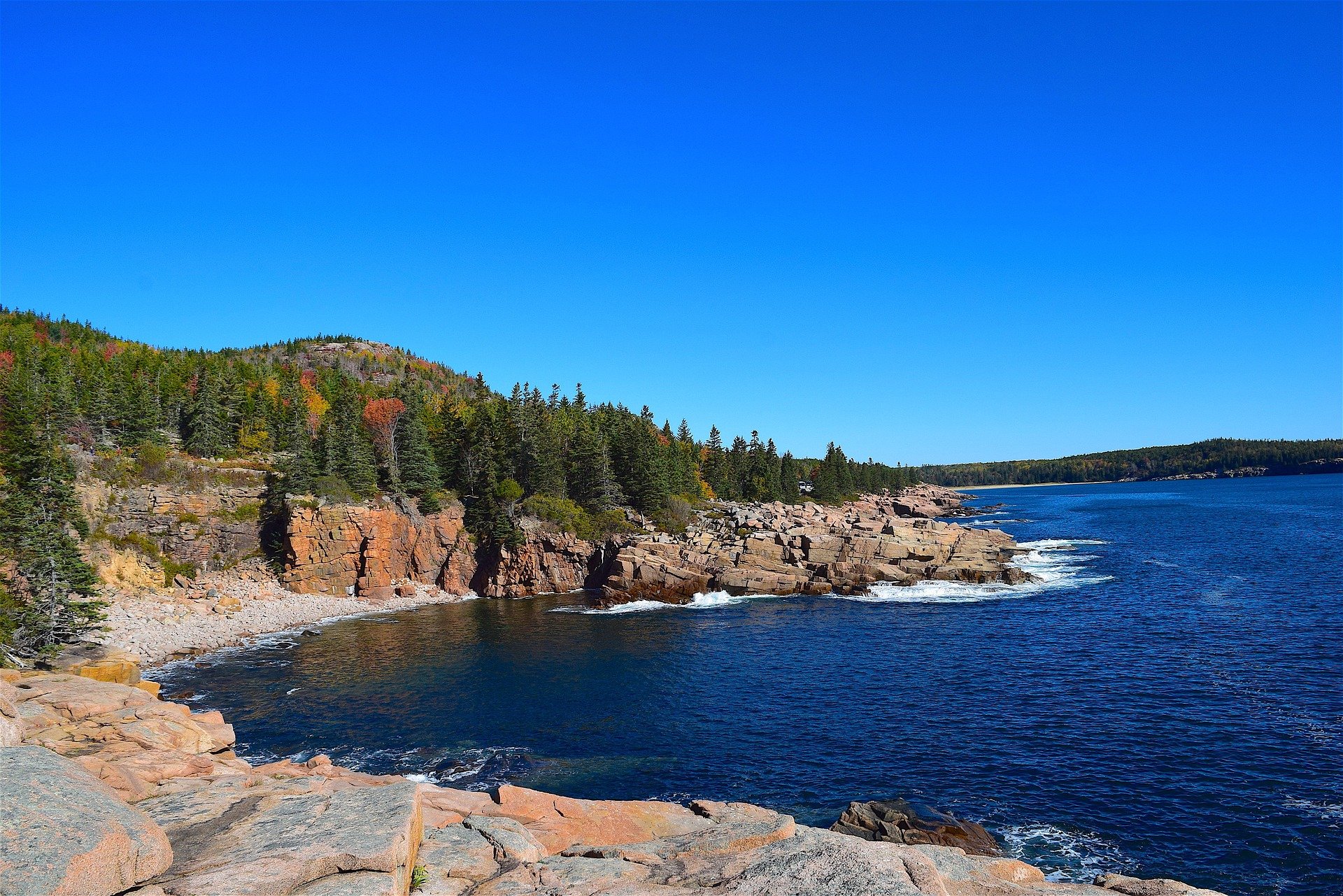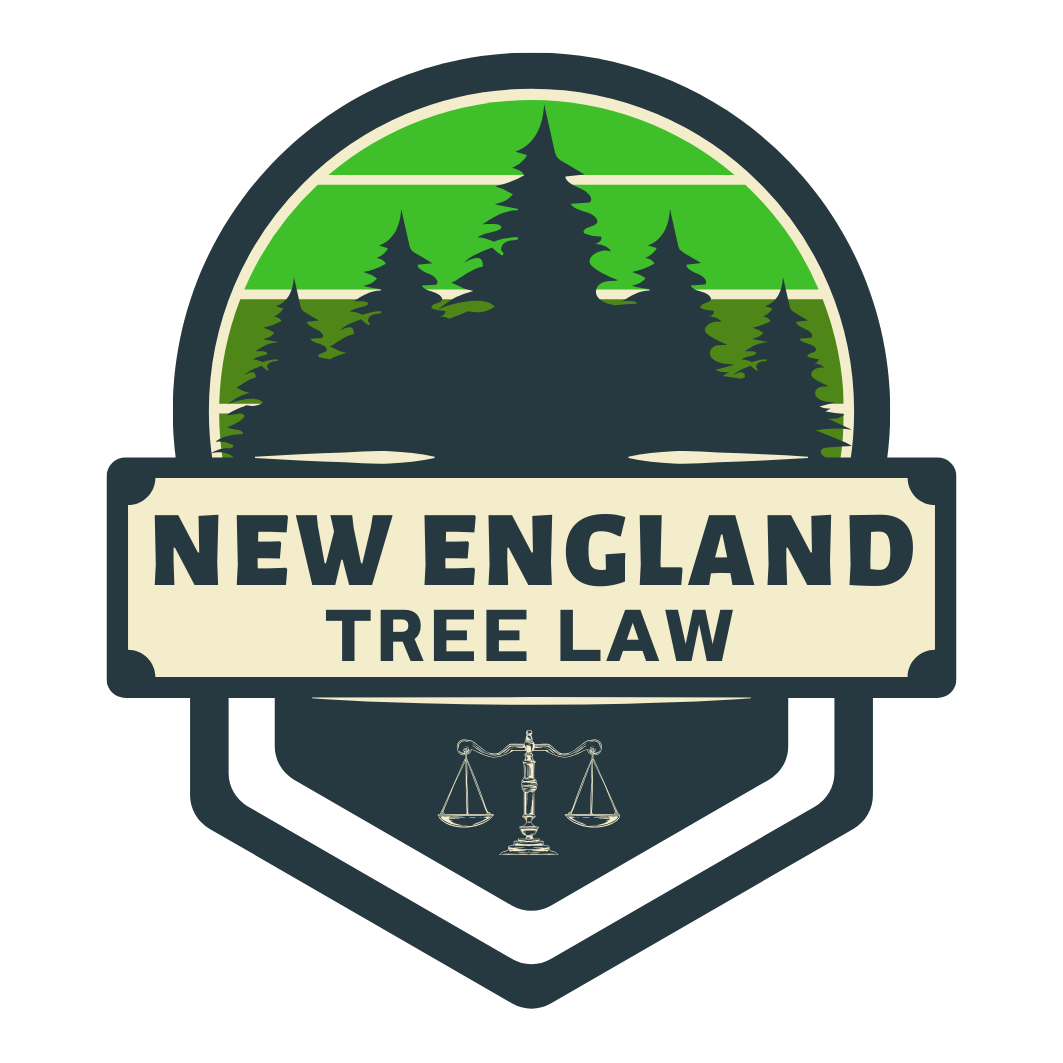
Maine
Maine timber trespass
Maine is a state known for its scenic beauty: rocky beaches, hidden coves, picturesque lighthouses, and yes — trees. The United States Forest Service estimates that almost 90 percent of Maine’s land area is covered by trees. That makes it the most forested state in the entire country. In total, there are over 23 billion trees in Maine.
Maine is known as the Pine Tree State, so naturally pines (especially eastern white pine trees) are common in the state. Spruce and fir trees are also prevalent, as are maples, beeches, and birches, among many other species.
Considering the sheer abundance of trees in the state, it may be no surprise that Maine has one of the most robust timber trespass statutes in the United States.
What is timber trespass?
“Timber trespass” is the legal term used to describe the unlawful cutting down of trees. Many states, including Maine, have statutes which provide legal remedies to landowners for wrongful tree-cutting. Those laws are collectively referred to as “timber trespass statutes.”
The Maine Timber Trespass Statute
Maine’s timber trespass statute is found at 14 M.R.S.A. § 7552. The statute is quite lengthy compared to similar acts in other jurisdictions. It was extensively amended in 2015 to increase penalties on timber trespassers.
The Maine statute provides a statutory cause of action for cutting down or damaging trees and other agricultural products. The distinguishing characteristic of the act is how it assesses damages.
14 M.R.S. § 7552 allows the owner of felled trees to choose from several different categories of damages depending on the circumstance. The options are as follows:
The “market value” of the lost trees for use as lumber, usually described in terms of “stumpage value”
The decrease or diminution of the value of the whole real estate parcel caused by the loss of the trees
Criminal forfeiture damages in accordance with 17 M.R.S. § 2510, which allow for an award of $25 for each tree up to six inches in diameter, $50 for trees between 6 and 10 inches in diameter, $75 for trees between 10 and 14 inches in diameter, and so on up to $150 for trees 22 inches and larger in diameter
For “ornamental” trees, fruit trees, or trees within 400 feet of a dwelling: “the costs of replacing, replanting and restoring the trees with trees of comparable size and the same or equivalent species and the actual costs for cleanup of damage caused during the cutting” plus cleanup costs necessitated by the wrongful cutting
The Maine statute is unique in that allows for the aggrieved property owner to choose from several different remedies. The statute therefore seeks to provide an injured landowner with maximum ability to make themselves whole.

Replacement cost for timber trespass
The Maine timber trespass law explicitly allows restoration cost as a measure of damages for certain types of trees: ornamental trees, fruit trees, and other trees within 400 feet of a dwelling. Ornamental trees are those which are not intended for harvesting, but rather for aesthetics, shade, and privacy. By allowing for replacement/restoration cost of ornamental trees (and other trees within 400 feet of a dwelling) the statute recognizes that the landowner cannot be adequately compensated for the loss of such a tree through its market value or diminution of property value. Ornamental trees provide a personal value to the property owner separate from their value to the real estate or as a commodity.
Notably, the portion of the statute allowing for replacement/restoration costs implicitly distinguishes the term “costs” from “actual costs”; in other words, the “cost” to restore a tree is permitted as damages, even when the tree is not actually being replaced and the costs are not actually being incurred. This is important because the restoration cost of certain very large trees may be very high and actual replacement may be impractical. Pursuant to the statute, however, the landowner can recover the cost of a hypothetical replacement, even if they do not incur those actual costs. See Violette v. Leo Violette & Sons, 597 A.2d 1356 (Me. 1991) (discussing statutory construction doctrine of expressio unius est exclusio alterius).
Statutory multiplier on damages for timber trespass
14 M.R.S.A. § 7552, paragraph 4 also allows for a multiplier on damages awarded under the timber trespass statute. The statute provides that someone who “negligently or without fault” commits timber trespass is liable for double damages under the statute. If the timber trespass was done “intentionally or knowingly,” the damages are tripled. Showing intentionality or knowingness is a high bar: it requires “something more than an utter and complete indifference to and disregard for the owner’s rights as a prerequisite to an award of treble damages.” Harvey v. Furrow, 107 A.3d 604, 614 n.6 (Me. 2014).
The statute does not give a trial court discretion about whether to multiply damages: a multiplier is mandated, even when the trespasser did so inadvertently or through an honest mistake. See Woodworth v. Gaddis, 58 A.3d 1109, 1114 (Me. 2012). The mandatory multiplier creates the possibility of very significant compensation awards in cases where trees are cut without permission, even if the trespass is accidental.
Punitive damages for timber trespass
Punitive damages are a type of damages that are awarded to punish a wrongdoer. They are rarely awarded and require clear and convincing proof of malice by the defendant.
The timber trespass statute expressly allows for punitive damages. Moreover, it allows for punitive damages in addition to the double or triple damages already mandated by the statute.
Malice is a severe type of wrongful conduct. It can be express or implied. “Express malice exists where the defendant’s tortious conduct is motivated by ill will toward the plaintiff.” Newbury v. Virgin, 802 A.2d 413, 418 (Me. 2002). “Malice also exists where deliberate conduct by the defendant, although motivated by something other than ill will toward any particular party, is so outrageous that malice toward a person injured as a result of that conduct can be implied.” Id.
Other recoverable costs under the Maine timber trespass law
The Maine statute has other generous provisions. The owner of trees which are wrongfully cut down may also recover from the trespasser “costs of professional services” incurred in pursuing a claim or lawsuit. Professional services include the cost of a surveyor, forester, and even attorney’s fees.
A prior version of the statute allowed an award of professional costs only if the trespass was done knowingly or intentionally. The current statute, however, does not limit recovery to intentional trespasses. Apparently, therefore, a negligent or unaware trespasser is still liable for the costs of professional services incurred by the plaintiff, including attorney’s fees.
Insurance coverage for tree-cutting claims
Having your trees cut down by a neighbor, tree service, or other person can be extremely distressing. In many situations, the felled trees are important part of the homeowner’s yard and have significant sentimental value. It may feel like no amount of money can compensate you for the loss of privacy, aesthetics, and nature provided by the lost trees.
Getting adequate compensation for timber trespass cases can be even more difficult when suing the perpetrator directly. Especially where the trespasser is an individual like a neighbor, that individual may not be able to easily afford to pay you a settlement, even if they were clearly in the wrong.
Thankfully, in many cases the defendant may have insurance coverage. Standard homeowner’s insurance policies contain “personal liability” coverage which protect their insured from claims of negligently-caused damage to persons or property. If a timber trespass is caused accidentlly – for example, because of a misjudged property line – it should be covered by the perpetrator’s homeowner’s insurance policy. The same is true if the responsible party is a business like a logger or tree service: those companies typically have commercial liability insurance that will cover timber trespass lawsuits or claims.
It is important to note that liability insurance only covers accidents. So although it may seem beneficial to prove that a neighbor or other defendant cut down your trees on purpose, it may actually be counterproductive. Unless the defendant is wealthy, it generally will be more productive to seek double damages from an insurance company rather than triple damages from an individual person.
All insurance policies are different and may have applicable exclusions, exceptions, or other pitfalls relating to timber trespass claims. For example, many liability insurance policies likely will not cover awards of punitive damages.

Conclusion
Maine is known for its bountiful trees, so it is fitting that it enacted one of the most potent timber trespass statutes in the nation. The statute explicitly allows for the replacement value of ornamental and shade trees, plus a multiplier of at least two times even when the trespass was committed unintentionally. Additionally, the statute provides for an award of punitive damages in certain situations and the recovery of costs such as a surveyor and even attorney’s fees.
In one recent Maine timber trespass case, two neighbors were engaged in an acrimonious dispute. As part of the dispute, one neighbor cut down four ornamental trees on the plaintiff’s property. The court awarded the plaintiff a total of $273,600 for the cutting of the four trees, plus attorney’s fees and costs. This case illustrates the stiff civil penalties that can result from a timber trespass case in Maine.
If your trees were cut down without authorization, you could be entitled to significant compensation. Contact an experienced timber trespass attorney to evaluate your case.
